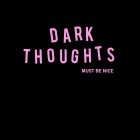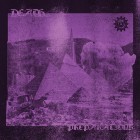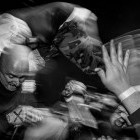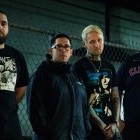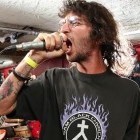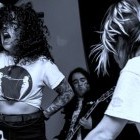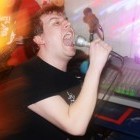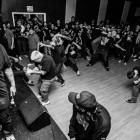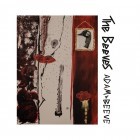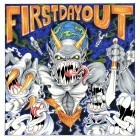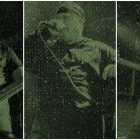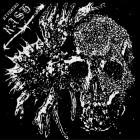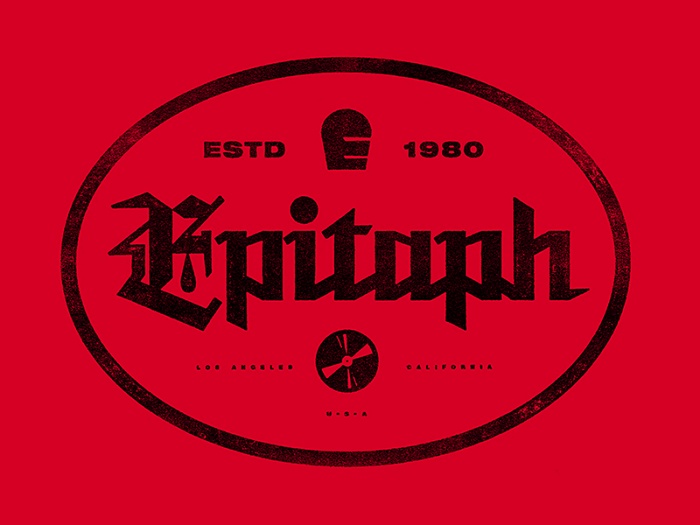
In what was started as a vehicle to release his own fledgling band’s material, Brett Gurewitz’s Epitaph Records wasn’t always the towering monolith it now is. Unwittingly or not, the label, in many ways, played an enormous part in the permanent paradigm shift of both punk rock and the music industry at large. 1994 will forever be the year punk “broke," or at least found itself carelessly vaulted into the mainstream.
The major label feeding frenzy that ensued has been long and well documented, destroying far more bands than it raised up. I’m less concerned with treading through the well-worn story of Offspring’s Smash, Rancid’s ...And Out Come the Wolves, or Bad Religion’s golden run which, depending on the day, lasted up to and includes Stranger Than Fiction. Hardcore scene stalwarts Agnostic Front and Madball have both enjoyed the fruits of a label that pushed 11 million copies of Dexter Holland and company’s breakthrough. Last I checked, it was still the highest selling independently released album of all time. How’s that for “Self Esteem?”
I could just as easily spend this entire piece extolling the virtues of Dag Nasty’s oft-ignored masterpiece Four on the Floor, or waxing nostalgic on Vision’s Watching the World Burn. Shit, were it not for the readily available (even to a broke-ass teen) Punk-O-Rama comps, it’s unlikely I’d be here now. Admittedly, I lost touch with the label for a bit during their wilderness years, as many labels were left blindly trying to navigate the quickly changing and arid landscape of the music industry post-Napster.
Flash forward to the modern era, the current roster puts them squarely back in the conversation as a serious proposition. Sporting a roster that includes Touché Amoré, Converge, Culture Abuse, La Dispute, The Menzingers, Propagandhi, The Interrupters, and others; I’m back in love with one of my first gateways. As is the case with most labels, let alone one approaching its fourth decade, tackling the catalog is a vast and endlessly daunting proposition.
For every landmark, there are 10 LP’s you’ve never heard. Here’s a baker’s half-dozen of releases you may have missed, be it intentional or otherwise. Follow me into the dustbin of my own questionable taste. Listen first if you wanna play along. I’ve left off releases from both their subsidiaries and sister labels (-Anti and Hellcat, Burning Heart, etc.), as that would be another 5,000 words (shout out to the ‘Coup) Dust ‘em off and dig in. Here’s Slept-On: Epitaph Records style.
Coffin Break, Crawl (1991)
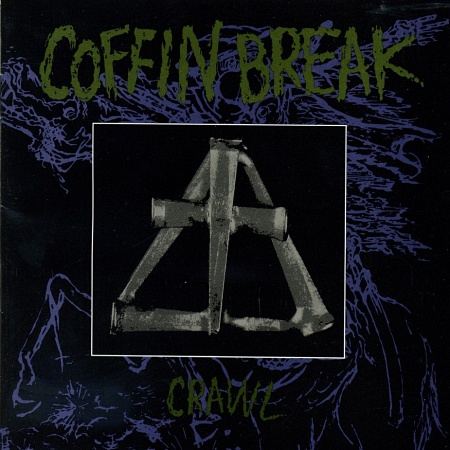
It was a rewatch of the fantastic Hype! documentary profiling the lesser-known bands of the Seattle grunge takeover that reminded me how I first stumbled across Coffin Break. On the first of the band’s two Epitaph offerings, they cover an impossibly large amount of sonic territory. From the Minneapolis touches of rough hewn '80s punk a la early Goo Goo Dolls, Replacements, and Flip Your Wig-era Husker Dü, the band was unbothered by classification. As likely as they were to craft straightforward rock, they invited bizarre diversions that dipped into terrain usually reserved for Skinyard, Melvins, or TAD.
Crawl is filled with well crafted punk pop as well as songs that seem to invert the genre entirely. Lyrically, there’s a gruff sensibility that foretold genre staples to come like Jawbreaker, Seaweed, and most certainly Big Drill Car, with whom they share a good bit. Other sonic touchstones would certainly be the long and reaching branches of influence on the Revolution Summer tree. Both Ignition and Gray Matter were clearly hiding in plain sight as touchstones and contemporaries. Seemingly excited by subverting punk’s rigid confines, they were most notably a touted favorite of a young Kurt Cobain.
“American Dream”, “Unsanity”, and “Why Should I” are recommended should you be searching out their more straightahead punk moments, while ”Stop” embraced the weirdo jazz-hardcore of NOMEANSNO.
Red Aunts, #1 Chicken (1995)
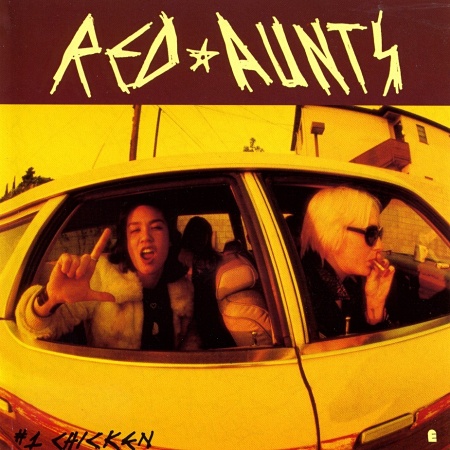
Aside from their late album placement on a litany of Punk-O-Rama comps, Long Beach’s Red Aunts mostly evaded me. More prolific than others on this list, this is where, in my opinion, their manic energy and rudimentary garage punk coalesced into short bursts of perfect sloppy punk. Where lo-fi presentation meets high fidelity sonics, they found a space that married roughshod sound to clear and airy production. Featuring a tough and killer bass tone, a metric ton of feedback, and piercing screams; they traded in a feral hybrid of riot grrrl and garage rock.
There are bits of classic Fastbacks, albeit festooned with randomly strewn garlands of slide guitar and cowbell. There are moments that feel definitively of a time, like the slacker jangle of the guitars or the collisions of melodic noisier passages, yet it’s all played at a breakneck pace. Though I wouldn’t necessarily describe the sound as happy, there’s a joyousness to their nihilism. #1 Chicken is chock full of odes to alienation and resignation. Absolutely killer.
Ruth Ruth, The Little Death (1996)
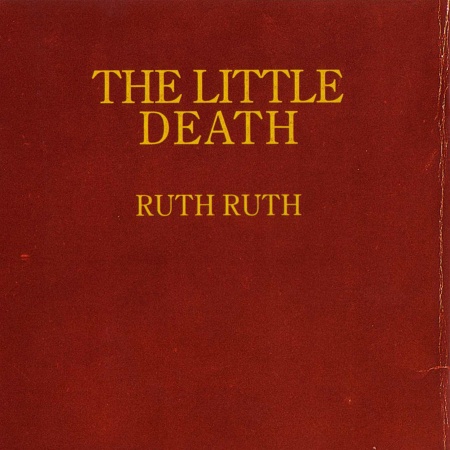
Somehow lumped in with “pop punk," New York’s Ruth Ruth never seemed to fully inherit or embrace the tag. Funny story, my first exposure to the act was when I was trying to “borrow” some pilfered mp3’s of Candlebox’s forgettable second LP (the debut is perfect, don’t @ me) and inadvertently stumbled upon this. How that happened is anyone’s guess, but I’m forever grateful for the mistake of a random Limewire user.
By anyone’s standards, Ruth Ruth had a genre flexibility not typically granted to Epitaph acts. Having toured with acts as disparate as Samiam and Spacehog, the odd pairings are nothing if not a testament to their sound. There are strong Fountains of Wayne, '90s power pop, and rock vibes all over this one. Also unmistakably '90s, this is soft grunge tinged pop rock that tips it’s hat to Weston and even the Gin Blossoms.The J.D. Salinger inspired cover art is the perfect fit, as their “rebellious” side is virtually toothless. Methinks that’s the point. Sweet and catchy, this is a buried treasure.
Union 13, Why Are We Destroying Ourselves? (1998)
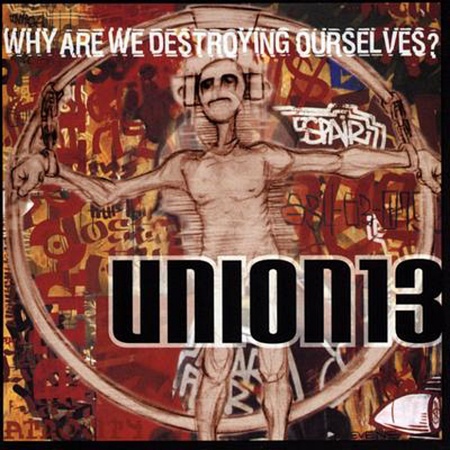
Kismet plays a large part in the story of the bilingual band from East LA. What was started as a backyard party band eventually led to them being discovered by Gurewitz himself. Subsequently, Tim and Lars from Rancid hopped on board to produce the punks’ first two LPs. Incidentally, my first exposure to the band was the note perfect cover of “Roots Radicals” for the storied and killer Hellcat comp series, Give ‘Em the Boot. Union 13’s second full-length album is street punk played at hardcore’s frenzied pace.
Backloaded with gang vocals and influence from early '80s USHC, they reference everything from acts like Zero Boys and Adolescents to the lesser known rousing and anthemic Bombshell Rocks. Lyrically, it’s a welcome change to take in the Latino experience in East Los Angeles. Rad album from a somewhat forgotten entity. Revisiting this one is well worth your time.
Downset., Check Your People (2000)
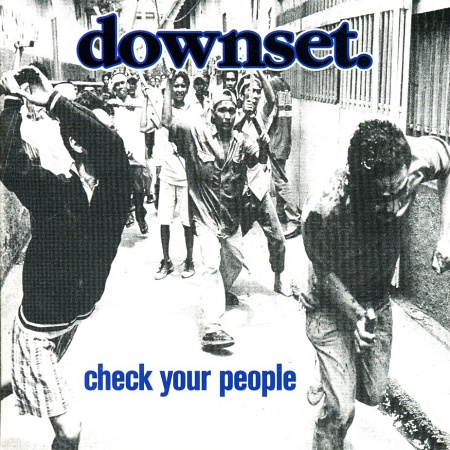
Hardcore fans of a certain age tend to have a clearly defined opinion on Downset. Check Your People was the Los Angeles band’s third LP and first on the Epitaph roster. At first listen, it’s far more introspective a listen than I was capable of noticing at the time of its release. Though I’ll never understand the point of negative reviews, I read a bunch of disparaging things about this LP. Columns decried it’s clear RATM influence, though by all accounts the band started before the Zach De la Rocha led-monolith. At the time, it certainly scratched a similar itch. Do We Speak a Dead Language is, in my opinion, an absolute classic and one of the few bands that managed to incorporate hip-hop without verging into “nü” territory.
Perhaps my fandom forces their arm of influence to seek longer than it actually is, but I hear a ton of Downset. in the staccato delivery of Incendiary and similar bands with the chopped grooves. Stray From the Path have absolutely digested their back catalogue. Though this flirts a bit more with mainstream rap-rock, the progressive/revolutionary bent forgives any near-transgressions. As they were unfairly derided as “rap-metal," hardcore kids may not know that Downset. were, well, hardcore kids themselves. You can clearly hear it here. Despite its placement as my least favorite of the band’s albums, it’s still an adrenaline blast from a band well ahead of both the curve and the times.
Osker, Idle Will Kill (2001)
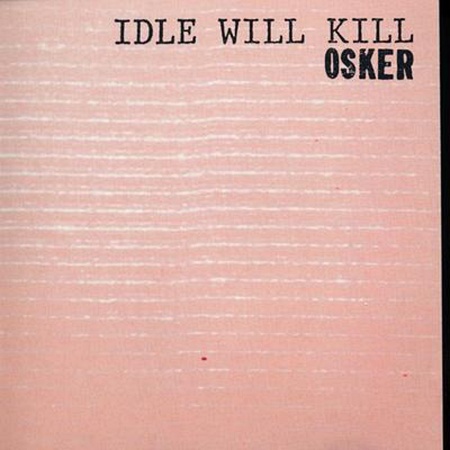
Epitaph had a way with finding LA bands. This next one penned not only one of my favorite pop-punk LPs of all time, one of my favorite albums ever. Full stop. Back in the day, I seem to remember outspoken singer Devon Williams was a divisive character and message board target. Though I never indulged the stories from the nascent days of internet shit-talking, I spent countless hours with Idle Will Kill. Youthful, desperate, and bratty, they added just the right dash of sneering snotty attitude to sidestep the saccharine wares of mainstream glancing bands of the era.
Landing somewhere between the pop-punk hardcore-ism of Dillinger Four, FYP, The Broadways, and Dookie-era Green Day, the entirety of the LP is an all-too-brief hit parade of lightspeed pop hooks and vocals on the right side of whine. Though never quite reaching the dizzying heights of Billie Joe and company’s peak, Idle Will Kill is a stunner that should sit alongside the heavy hitters. Lyrically and vocally, Williams runs the gamut from dejected nice guy to the self-advocating and piss-taking all in a single track. When, at the end of “Animal," he hits a raw throated spontaneity, it feels gloriously cathartic. Their mastery of the genre is evident. Coincidentally, they had beef of some sort with fellow shit-stirrers NOFX which I’m always in favor of.
Heavens, Patent Pending (2006)
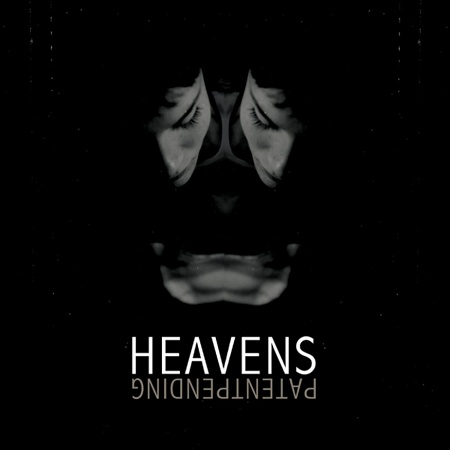
As Matt Skiba is now doing time in one of the world’s biggest rock acts, backwards glances are likely your best chance to sample his deceptively clever songwriting skills. Last year’s Alkaline Trio record was a welcome reclamation and return to form. Lest I digress any more, the focus here is one the one-off Heavens LP, Patent Pending. As was the zeitgeist in the early ‘oughts, this band was but a duo. Skiba and Josiah Steinbrick from the equally underrated F-Minus, the project was reportedly penned and committed to tape in land speed record fashion. The morose and bleak lyrical content of A3 is still present but backed with a post-punk minimalist approach.
Early album tracks swap bits of jangle and driving a backbone with an almost New Romantic vibe. The electronic elements flirt with everything from Interpol to the Killers. Most impressive is Steinbrick’s dexterity and sense of independence as a musician. Coming from the absolute fury of his other band, the subtlety and restraint on display is perfect. Though Skiba apparently joined forces after the music was written, his morbidly sweet courtship of the macabre remains a highlight. Heavens was but another chance to find and insert hooks all over the place. Though a one-off, it sits well amongst the bleak indie of the era. Check “Annabelle” or “Counting” for what they do best. Also check late album “True Hate” because it sounds like a Sugar Ray ballad. Is that a good thing? Ask me and find out.
***

